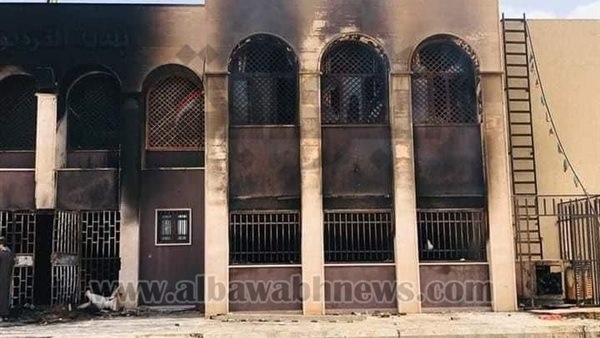Saif al-Islam Gaddafi, MB behind chaos, protests in Libya as talks fail

Turmoil
has soared across Libya as Libyan political protagonists quit talks in Geneva
Thursday without reaching a deal on the constitutional draft and elections.
Talks
between the House of Representatives and State Council legislative bodies were
aimed at reaching a common constitutional basis for elections that were
originally scheduled for December 2021.
This
has drawn the ire of the people of Libya due to the intransigence of the Muslim
Brotherhood and its allies.
Protesters
have stormed Libya's parliament building in the eastern city of Tobruk while
others marched the streets of Libya in demonstrations allegedly against the
deteriorating living conditions and political deadlock.
Despite
the progress in negotiations between the heads of the respective chambers this
week, disagreements remained on the eligibility requirements for the candidates
in the first presidential elections.
After
three rounds of consultations in Cairo, a common ground has not been reached
yet towards reaching a comprehensive national election, which is a genuine
desire of the Libyan people.
"Disagreement
persists on the eligibility requirements for the candidates in the first
presidential elections," UN Libya adviser Stephanie Williams has said,
adding that she would make recommendations on alternative ways forward.
Libyan experts have suggested that failure to
reach common negotiating paths was due to intransigence by the terrorist Muslim
Brotherhood and its desire to tailor the agreement in favor of its candidates.
Libyan
sources have told Al Bawaba Newspaper that those who attacked the parliament
building in the eastern city of Tobruk are implementing certain political
agendas as some of them held over portraits of former president Muammar
Gaddafi.
The
sources pointed out that the protesters who set fire to Parliament and stormed
it are affiliated with Saif al-Islam Gaddafi and that they have their own
agendas and political aims.
The
Parliament in March appointed Fathi Bashagha to take over as prime minister,
but Abdulhamid Dbeibah who was installed in the role through a UN-backed
process last year has refused to step down.
The sources pointed out that the cover of the
demonstrations is the deterioration of the living conditions in Libya, but the
primary goal is political, noting that Saif al-Islam Gaddafi stands behind this
turmoil as he seeks to return to the Libyan political scene through the
election.
The sources continued, that the residents of
Tobruk are angry at the regulatory measures carried out by the Egyptian and
Libyan armies to prevent infiltration across the border, because they profit
from facilitating immigration, smuggling and visas.
The sources further affirmed that Dbeibah on the other has been trying to spread chaos, while
Bashagha is seeking to take over power, therefore, every party is taking
advantage of protesters for each own interests.
The sources added that the Muslim Brotherhood
is the main generator for the chaos that is currently taking place in Libya, as
they derive their legitimacy only from chaos, and they are now trying as much
as possible to direct these demonstrations to lead to burning, destruction,
looting and violence.
As for the Geneva agreement, sources have
affirmed that the Brotherhood is clearly afraid of something, which is Egypt's
support for the government of Bashagha because it is a government capable of
controlling the homeland and the army, therefore, the end of the Muslim
Brotherhood in the country.
It
was also affirmed that the issue regarding having a foreign nationality was
highlighted by the group to prevent Field Marshal Khalifa Haftar from entering
the elections because they know that if he entered the elections, they will not
be able to forge, and they will not be able to win without forgery.
Regarding the army and police resistance to
the incidents of violence, burning and looting that occurred today in Libya,
Libyan sources said that the eastern region did not have violence events except
in the city of Tobruk, which is of a tribal nature.
The sources also added to Al-Bawaba that the
eastern region lays its decision making in the hands of its people, as this
region fell in the events of 2011 in 12 days, so people are afraid of
intervention, armament, and being manipulated through slogans.
Libya
has been suffering several days of power outages, worsened by the blockade of
several oil facilities while recent weeks have seen skirmishes between armed
groups in Tripoli, prompting fears of a return to a bloody conflict.








